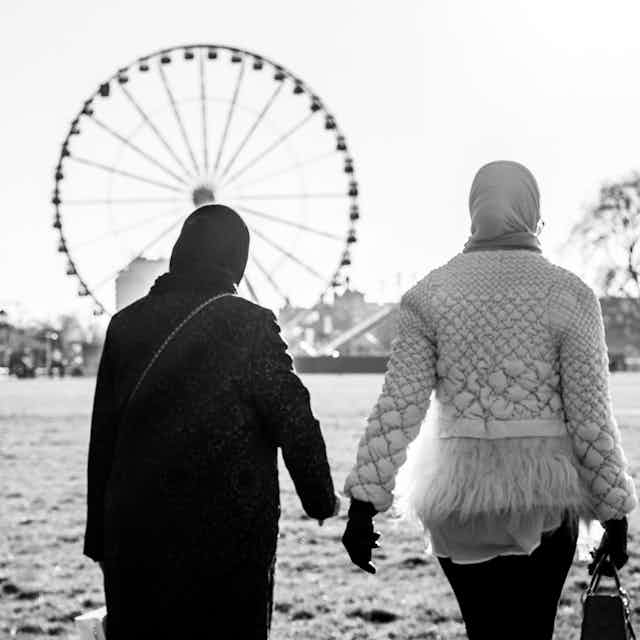The response to the attacks on Paris has been swift and decisive. As well as reinstating border controls, instigating a manhunt for the remaining suspects and carrying out a series of raids and arrests, the French government has also dropped 20 bombs on targets in Raqqa, Syria, in retaliation against Islamic State, which claimed responsibility for the Paris attacks.
But now, as governments across Europe consider their next moves, calls for unity and inclusion cannot be ignored. Especially if – as some have speculated – feelings of isolation and alienation from wider society can be a cause of radicalisation. On this front, the UK should be particularly keen to take action.
A new report from the Islamic Human Rights Council (IHRC) shows that over the past five years, there has been a shocking deterioration in the quality of everyday life for Muslims in Britain. The report’s findings are drawn from a robust survey of 1,782 people, conducted in 2014.
It notes a marked increase in hostile language from politicians and the media, more incidents of physical attacks and abuse on the street and greater difficulties in the labour market and the education system. The report found that in 2010, 39.8% of respondents had experienced verbal abuse, while 13.9% had suffered physical assault. Both of these figures went up to 66% and 17.8% respectively in 2014. The intensity of the attacks also escalated.
The vast majority of participants (87.7%) felt that those who discriminated against them were highly driven by what they saw in the media. And the media itself was overwhelmingly seen to be biased against Muslims: 94% said that they witnessed negative stereotypes of Muslims in the media in 2014, while almost 85% reported they had encountered politicians using Islamophobic rhetoric.
This pattern of discrimination is set to continue in the coming years, and will only be escalated by events such as those in Paris.
Long-term problems
But a pattern such as this does not emerge overnight: it has been a long time in the making. Research I published with my colleagues Katy Sian and Salman Sayyid, back in 2013, identified a strikingly similar set of issues across workplaces, schools and the media.
Our analysis showed that Muslims’ participation in the workplace has been curtailed by discriminatory hiring practices, and a lack of representation in managerial roles. These problems have become worse since anti-discrimination measures were weakened, despite evidence that Muslims and ethnic minorities still face significant challenges when it comes to inequalities in pay and employment.
Through our research, we also found a number of issues that were making life more difficult for Muslim children in schools. The task of monitoring “extremism” in schools – through programmes such as Prevent – combined with a lack of racial equality training, has left teachers unprepared to deal with issues around race and religion in the classroom, while reinforcing barriers for Muslims in the education system.

The way Muslims are represented in the British press didn’t help. We analysed news items from national and local press, organising the data around dominant themes, including the “war on terror” and fundamentalism, grooming, abuse and madrasas, forced marriages, immigration, riots and racism. The results indicated that 70% of all the news items gathered were hostile, while 15% were inclusive and 15% neutral. Compared to previous studies, there has been a marked decline in balanced reportage.
Making amends
The deterioration of the news coverage, noted by both our research and the IRHC’s, mirrors the decline of anti-racism policy across Europe. Racial equality is slipping down the agenda at all levels of government. The Equality and Human Rights Commission have broadened the focus of their strategies and activities away from anti-racism specifically, and toward a general emphasis on fairness.
The UK government is in the process of streamlining, degutting and dismantling the public policy work on racial equality. It has removed best practice guidelines from the Department of Education website and brought an end to many of the efforts to improve academic achievement among ethnic minorities. As a result, confronting racism is no longer a priority for the UK’s local authorities.
By grounding policies in general terms such as “equality” and “human rights”, authorities at all levels obscure the fact that racism and Islamophobia are distinctive problems, which demand a targeted response. This approach can only lead to further racism in our schools, politics and workplaces, which in turn will deepen the racial inequalities in our society. As migration, international conflict and war spark further hate and hostility, both the UK and the EU need fresh and focused strategies to tackle the issues affecting Muslim and ethnic minority communities.
Many of the Muslims surveyed for the IHRC’s report voiced an urgent desire for change, and made constructive proposals about what should be done. These included calls for more effective educational interventions and interfaith work, the building of community alliances and the promotion of a new, inclusive understanding of what it means to be a citizen. Now is the moment for authorities across Europe to take note – and take action.

